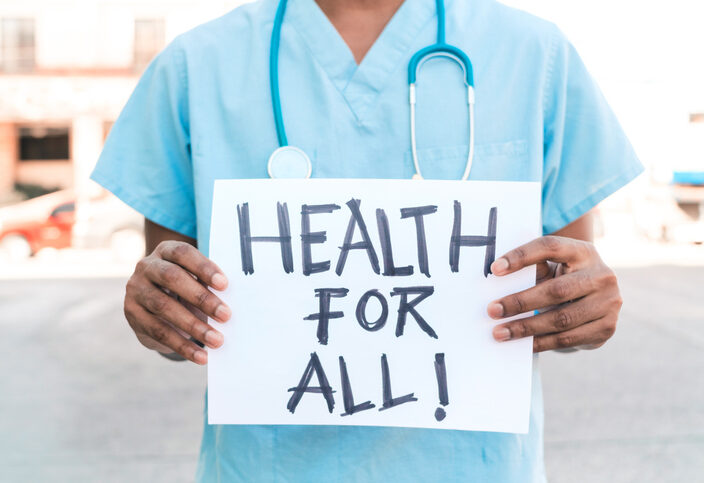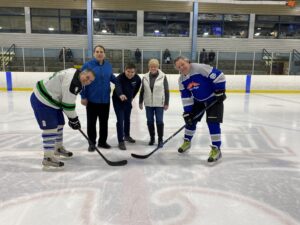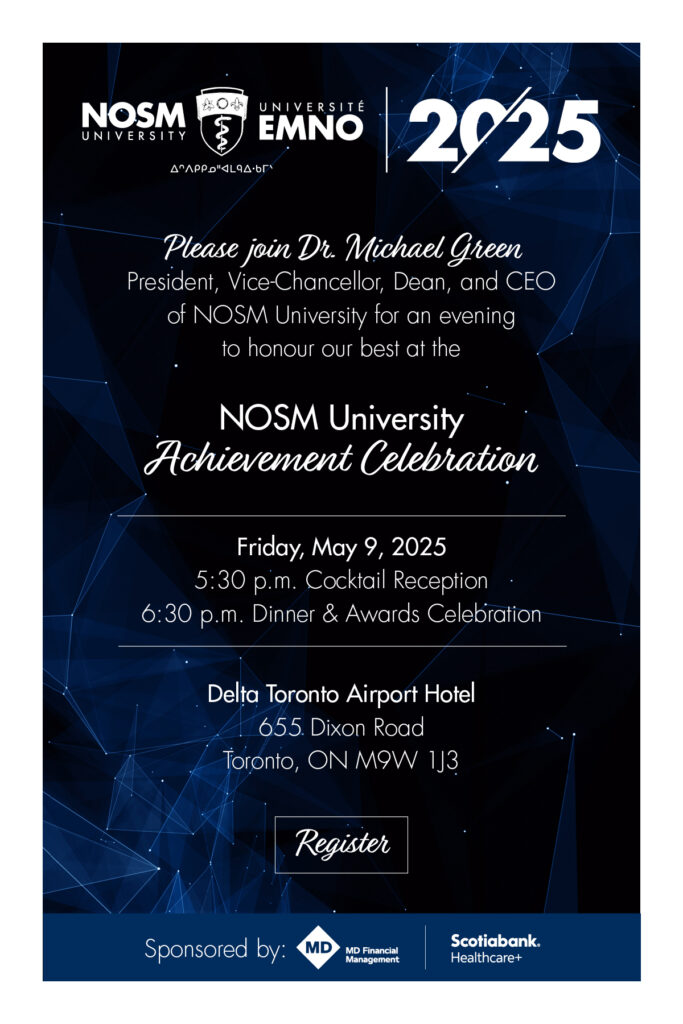Empowering Health Equity
Posted on February 20, 2025
As many of you may know, rural and remote medicine holds a special place in my heart. During my eight years as a family physician in Moose Factory and Kashechewan, I saw firsthand how communities along the James Bay Coast interacted with health care, and the profound human impact of economic and social barriers in some of the most isolated parts of Northern Ontario.
I had the great honour of providing care to many families who made Kashechewan and Moose Factory First Nation their home. It is difficult to watch the same families, who wholeheartedly welcomed me into their communities, endure longstanding systemic issues, like chronic food instability, housing shortages, environmental risks, isolation, economic disparity, non-potable water, and reduced access to education and comprehensive health-care services.
The most challenging of all was witnessing how these inequities shaped the lives of children in rural and remote communities. Children, who are meant to be embracing the joys of their youth, are instead saddled with the anxiety of having to evacuate their homes, missing out on weeks of education due to school closures, living with the looming presence of boil water advisories, and having to navigate the profound impact of these hardships, compounded by the mental toll that comes with living in an isolated part of the province.
That is why I was so heartened when NOSM University’s Student Council selected the theme of this year’s President’s Lecture Series, Health Equity: Improving Care for Indigenous Children. This topic is deeply personal to me, and I believe discussions on health-care inequities in Indigenous communities—especially as they relate to children—are long overdue. I am privileged to help facilitate an event that highlights such critical issues.
The recording of the President’s Lecture Series can be found on YouTube@nosmtv, and it features presentations from children’s rights advocate and NOSM University Chancellor, Dr. Cindy Blackstock; Jyles Copenace and Katie Root from the Kenora Chief’s Advisory who operate a youth and family wellness camp; and, Dr. Erin Peltier, a Northern Ontario physician, Assistant Professor and alumna, who has worked closely with both urban and rural Indigenous populations across Ontario.
Dr. Cindy Blackstock discussed her work with the First Nations Child and Family Caring Society of Canada (the Caring Society), and all they do in carrying on the legacy of Jordan River Anderson. Jordan’s passing 20 years ago galvanized a decades-long movement to address inequities in health care and social services for Indigenous youth. A cherished member of the Norway House Cree Nation, Jordan was born with multiple disabilities that required specialized care and treatment.
Having spent over two years in hospital while the province of Manitoba and federal government squabbled over who would be responsible for his in-home care, Jordan passed away before ever getting to experience a life in his own home. In 2005, Jordan’s Principle was established to ensure that First Nations children receive the services and supports they need without jurisdictional disputes delaying care. Under this rule, the focus is placed on providing essential care first, with funding responsibilities determined later.
One the most touching moments of the event came during Dr. Blackstock’s presentation, when she shared the baby blanket of Jordan River Anderson. It was a stark reminder that Jordan’s Principle is not just a legal principle designed to address gaps in government-funded services, it is the legacy of a real-life boy. The blanket was donated by Jordan’s family to be held in trust by the Caring Society. Jordan’s name and birth date were lovingly cross-stitched in the center of the quilt by members of his family, with each corner of the quilt adorned with the image of a teddy bear. It was this blanket that inspired the teddy bear being adopted as the symbol of Jordan’s Principle.
When community leaders, physicians-in-training, advocates, researchers, and health-care practitioners come together to discuss complex issues—such as health equity and the treatment of Indigenous peoples in social services and health-care settings—we move closer to building a system that upholds dignity, equity, and respect for all.
I extend my deepest gratitude to the event’s expert panel, who through their tireless work within Canadian Indigenous communities, continue to call attention to the inequities that exist within health care and child welfare systems. Chi miigwetch, a sincere thank you, to NOSM University’s Student Council for their part in organizing the President’s Lecture Series and in their selection of this year’s theme.
For NOSM University, empowering health equity is essential to building a more just and inclusive health-care system. By fostering conversations, sharing lived experiences, and driving meaningful change, we can work toward a future where every individual receives equitable access to care.
NOSM University has demonstrated a longstanding commitment to addressing systemic inequities, focusing on supporting underrepresented groups in medical education by offering separate streams for Indigenous and Francophone learners, and new this year, a dedicated Black Admissions Stream.
This initiative builds upon NOSM University’s established history of supporting equity-deserving groups, consistently including admissions streams for Indigenous and Francophone populations. This new stream represents a commitment to increasing representation and dismantling barriers for Black students pursuing medical careers. By creating this pathway, NOSM University is actively working to ensure its medical education environment reflects the diversity of Northern Ontario’s communities.
Dr. Michael Green
President, Vice-Chancellor, Dean, and CEO
NOSM University
If you have any feedback or comments, please reach out at president@nosm.caand follow me on X (formerly Twitter) @DrMichaelGreen1.
Bring a Doctor Home Hockey Tournament Scores Big
 From January 20-25, 2025, the 19th annual Bring a Doctor Home Hockey Tournament brought together 28 teams at the John Rhodes Arena in Sault Ste. Marie. Volunteer employees and retirees of Algoma Steel came together with a shared goal to raise funds for future doctors in the Algoma Region. With an incredible total of $520,652.79 raised since the tournament’s inception, the impact and community engagement continue to grow. The Bring a Doctor Home Bursary has awarded more than $130,000 to 27 learners since 2006, helping to alleviate the financial inequities disproportionately affecting Northern learners.
From January 20-25, 2025, the 19th annual Bring a Doctor Home Hockey Tournament brought together 28 teams at the John Rhodes Arena in Sault Ste. Marie. Volunteer employees and retirees of Algoma Steel came together with a shared goal to raise funds for future doctors in the Algoma Region. With an incredible total of $520,652.79 raised since the tournament’s inception, the impact and community engagement continue to grow. The Bring a Doctor Home Bursary has awarded more than $130,000 to 27 learners since 2006, helping to alleviate the financial inequities disproportionately affecting Northern learners.
You’re Invited: NOSM University Achievement Celebration
 The achievements of our NOSM University colleagues in 2025—and over the past 20 years—are being celebrated during Northern Constellations + Connections. To recognize the extraordinary contributions of alumni, faculty, staff, and learners, the third annual NOSM University Achievement Celebration will be held on the evening of Friday, May 9, 2025.
The achievements of our NOSM University colleagues in 2025—and over the past 20 years—are being celebrated during Northern Constellations + Connections. To recognize the extraordinary contributions of alumni, faculty, staff, and learners, the third annual NOSM University Achievement Celebration will be held on the evening of Friday, May 9, 2025.
We hope to see you there.


